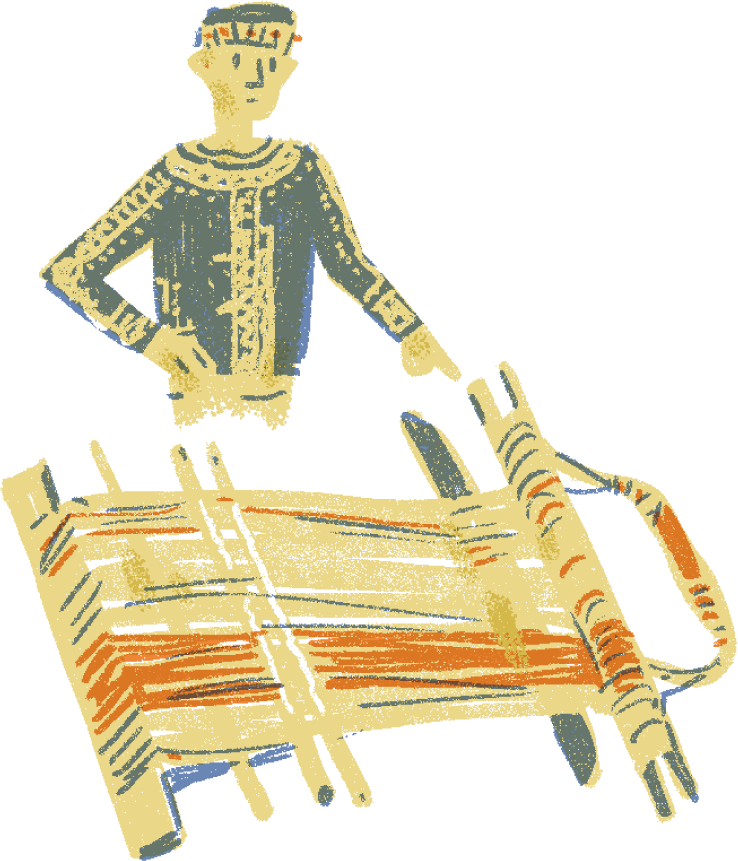Traditionally, indigenous peoples usually used gender to determine a person’s role in society. The most common situation was that men became hunters, and women were responsible for textile weaving. Males were expected to complete the tasks which required physical strength, such as hunting, fishing, and chopping firewood; and women chiefly worked in and around the home, weaving textiles and working the fields. The gender-based division of labor gradually form a part of the people’s traditional social order, and also generates unique gender taboos in different communities. However, as times change, is there any chance for modern indigenous peoples to break through these traditional gender roles?
 I am a young man, but I want to learn weaving.
I am a young man, but I want to learn weaving. 
 : Upon learning that his people's unique ground loom weaving techniques will one day disappear, young Paiwan male Sakinu decided to seek out a teacher and learn the weaving skills.
: Upon learning that his people's unique ground loom weaving techniques will one day disappear, young Paiwan male Sakinu decided to seek out a teacher and learn the weaving skills.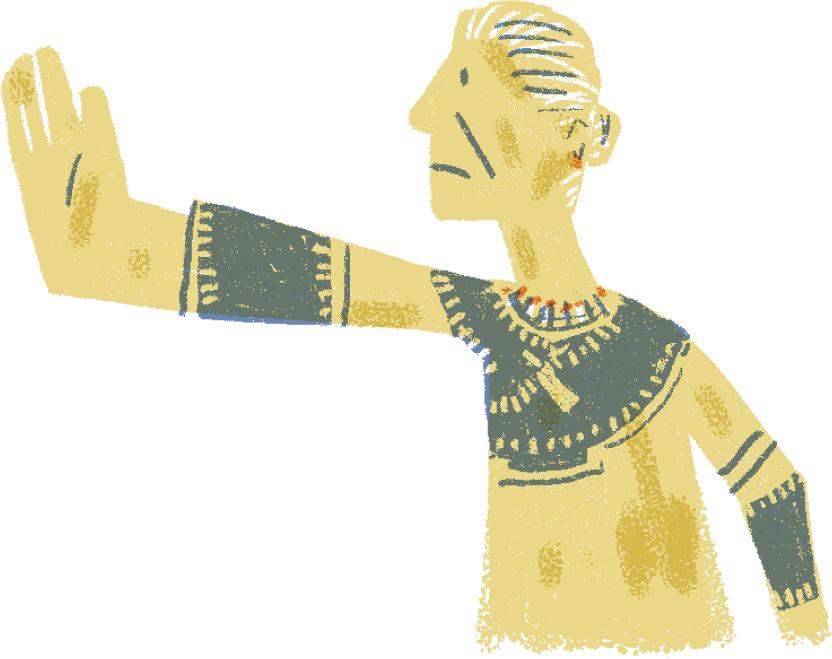
 Sakinu was berated by the elders, who told him that men are not allowed to touch ground looms. None of the female weavers would teach him.
Sakinu was berated by the elders, who told him that men are not allowed to touch ground looms. None of the female weavers would teach him.
In traditional Paiwan society, there is a clear division of labor between male and female. Men are hunters and not allowed to weave textiles, which is conventionally considered a woman’s job. Interestingly, the wood used to make the loom are mostly collected by male, who also construct the weaving tool. However, after the ground loom is completed, men are no longer allowed to touch it. The Atayal, Sediq, Truku, and Bunun communities have similar customs.
 Textile weaving is a woman's job. How about rattan and bamboo weaving?
Textile weaving is a woman's job. How about rattan and bamboo weaving? 
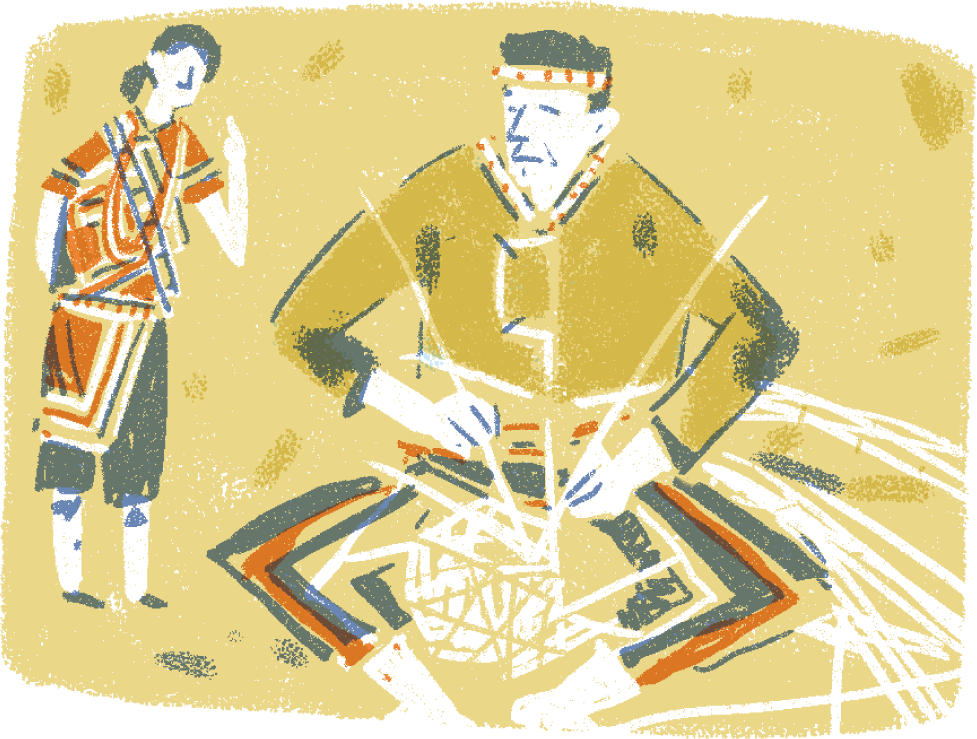
 : Dongi, a Pangcah lady, appreciates traditional rattan weaving crafts very much and wishes to learn the skills from village elders.
: Dongi, a Pangcah lady, appreciates traditional rattan weaving crafts very much and wishes to learn the skills from village elders.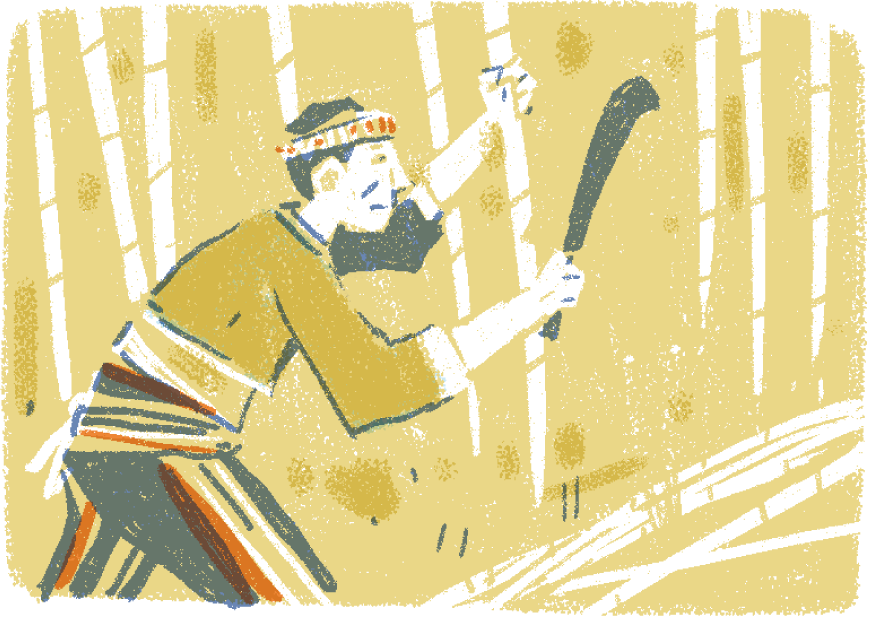
 The elders consider rattan weaving a man's responsibility and thus refused to teach Dongi.
The elders consider rattan weaving a man's responsibility and thus refused to teach Dongi.
Because rattan and bamboo grow in the mountains, and gathering, processing, and weaving the materials all require much physical strength, bamboo and rattan weaving are traditionally done by men. Unlike textile weaving which is done exclusively by women, rattan and bamboo weaving are crafts that belong to the men.
 Women are not allowed in the Palakuwan?
Women are not allowed in the Palakuwan?
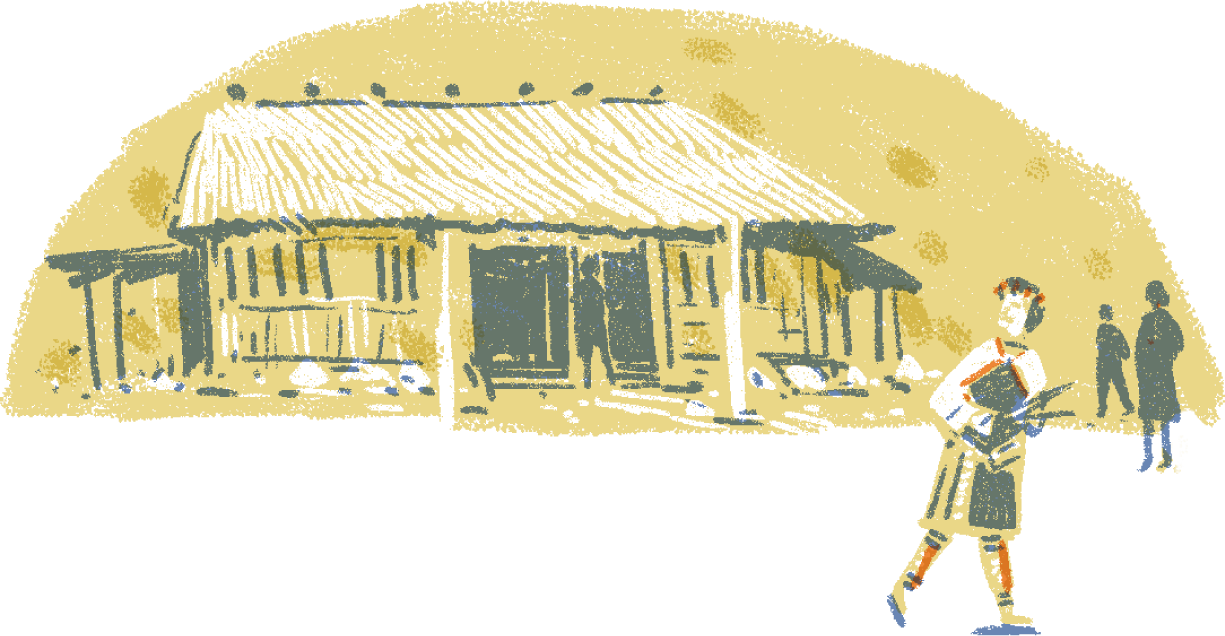
 : Pinuyumayan woman Araytay wants to send lunch to her brother, who is in the Palakuwan. So she pushed open the door of the building and walked in.
: Pinuyumayan woman Araytay wants to send lunch to her brother, who is in the Palakuwan. So she pushed open the door of the building and walked in.
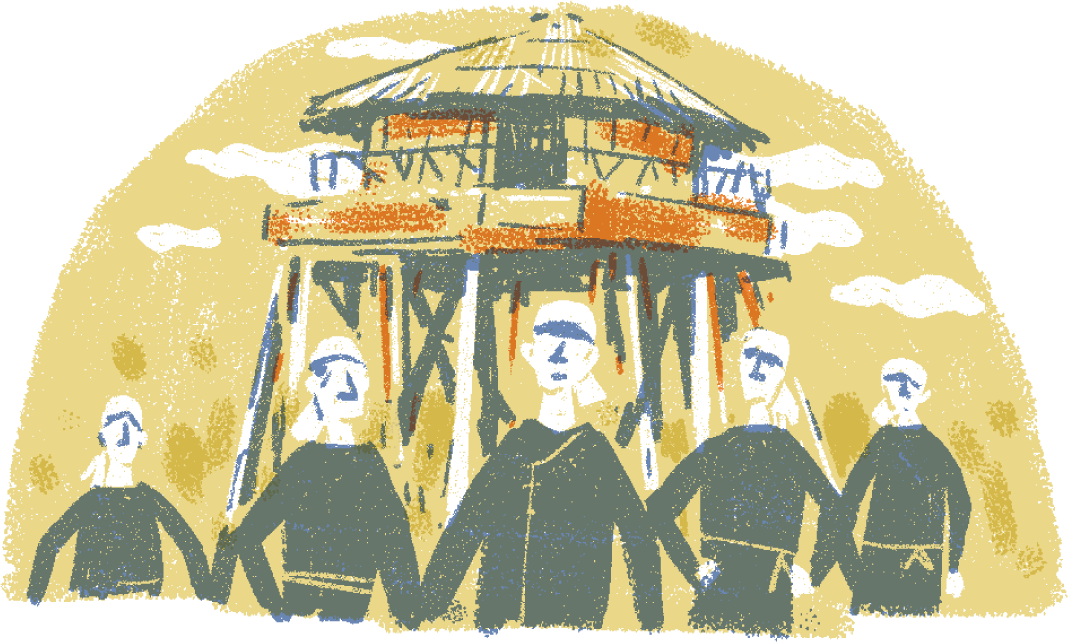
 All the males inside were shocked when they saw a woman step into the Palakuwan. The elders scolded Araytay, and told her that women are not allowed to step into the place.
All the males inside were shocked when they saw a woman step into the Palakuwan. The elders scolded Araytay, and told her that women are not allowed to step into the place.
In Pinuyumayan, Pangcah, and Sakizaya societies, after male community members are initiated into their age class, they begin to live together in the Palakuwan. They are responsible for a number of community affairs, such as protecting the community, resource production, and holding rites and sacrifices. All communities with taloan forbid females to enter the space. It should be noted that the Kubas in Tsou communities, though not communal spaces for a specific age class, prohibit women from entering as well.
Note: Palakuwan is the youth assembly house of the Pinuyumayan people, different ethnic groups have different names, for example, the Pangcah/Amis people call it sfi, the Sakizaya people call it dabek.
The assembly house sits at the heart of addressing public affairs for indigenous peoples, and is where boys and men of different age classes receive training and education.
 I am a woman, but I want to catch flying fish!
I am a woman, but I want to catch flying fish!
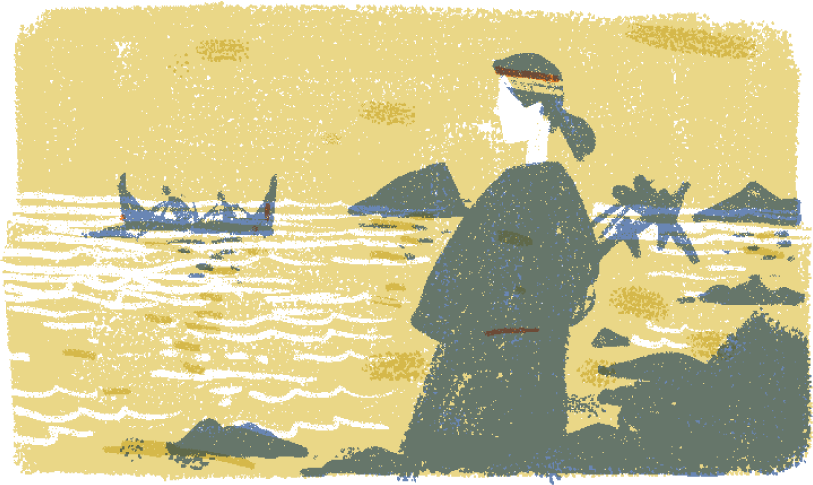
 : Tao woman Manui greatly admires how her father and uncles catch flying fish. So she climbed up onto the tatala and announced that she wanted to go out to sea, too.
: Tao woman Manui greatly admires how her father and uncles catch flying fish. So she climbed up onto the tatala and announced that she wanted to go out to sea, too.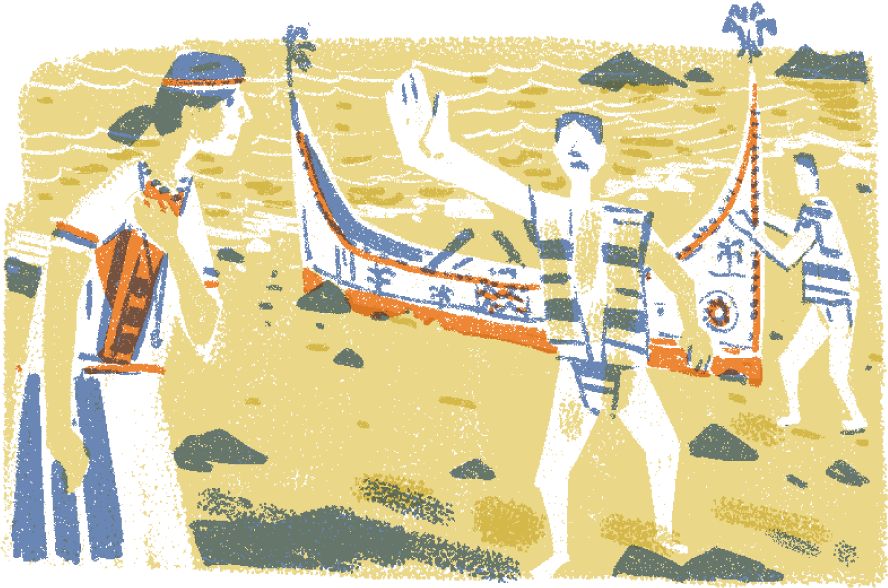
 Manui was severely reprimanded by the elders who told her that women are not allowed to touch the tatalas as it would affect the community's flying fish harvest.
Manui was severely reprimanded by the elders who told her that women are not allowed to touch the tatalas as it would affect the community's flying fish harvest.
Among peoples whose traditions include fishing skills and related customs, such as the Tao and Pangcah, most of them forbid women to touch fishing tools and boats. Women are also not allowed to observe the Ocean Rite and Fishing Ritual.
 A patriarchal society or a matriarchal society? Who's marrying into whose family?
A patriarchal society or a matriarchal society? Who's marrying into whose family?
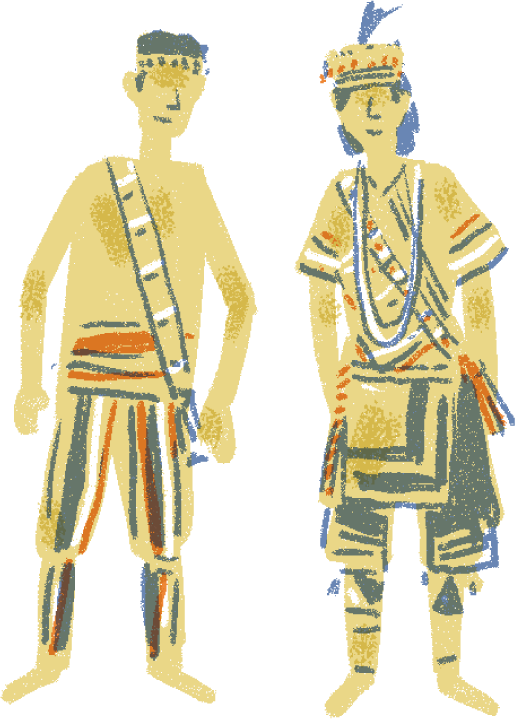
 : Mayaw and Panay, both Pangcah, are about to get married. They mention that Panay is going to “marry into” Mayaw's family.
: Mayaw and Panay, both Pangcah, are about to get married. They mention that Panay is going to “marry into” Mayaw's family.
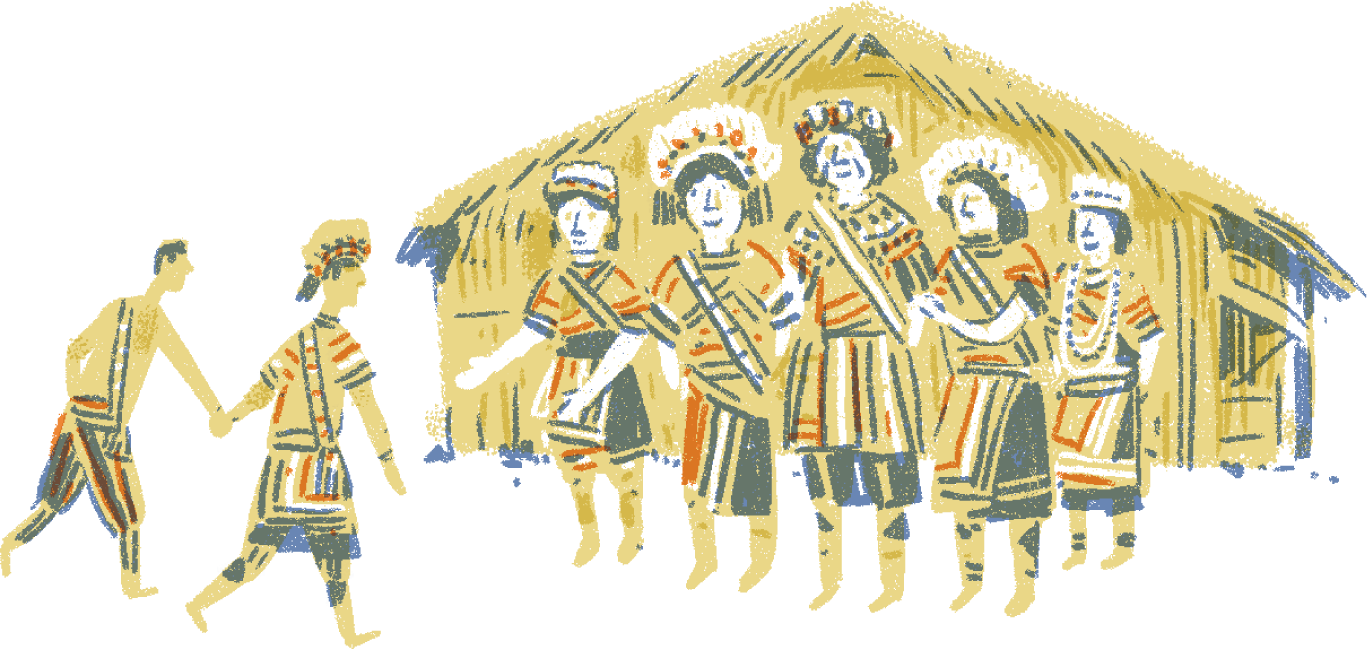
 According to the elders, it's Mayaw who is going to marry into Panay's family!
According to the elders, it's Mayaw who is going to marry into Panay's family!
The Pangcah and Pinuyumayan are matriarchal societies: the family’s land and property are passed down from mother to daughter. The husband moves into his wife’s house after marriage, and children bear the mother’s family name.
As traditional cultures transition into the modern world, gender boundaries are gradually blurred. For example, in order to pass on the fading traditional Paiwan textile weaving craft, Paiwan master weaver Ljumiyang Pacekelj, who was named as a “national treasure” by the Ministry of Culture, started to take in male students as well. The Truku Hunters’ Association, which was established this year in Hualien County's Sioulin Township, accepts hunting license applications from everyone, regardless of the applicant’s gender.
In the past, our ancestors divided daily work and tasks according to the specific strengths and abilities of men and women to maintain the operation and order of society. Yet modern circumstances are not the same anymore, and the concept of equality is becoming more popular. Gender is no longer an unyielding boundary that cannot be crossed, but a topic that can inspire more thoughts and reflections.
REFERENCES:
邱芷柔(2020)∣傳承排灣織布工藝 許春美獲列「人間國寶」。自由時報,https://news.ltn.com.tw/news/life/paper/1402069。
李修慧(2019)∣原民傳統「槓上」性別平等(上):只有男性可以「領唱」,為何卻有個「領唱奶奶」?。The News Lens 關鍵評論網,https://www.thenewslens.com/article/111852。
孫嘉穗(2017)∣跨越族群性別空間與傳統禁忌:社會學的省思。巷仔口社會學,https://twstreetcorner.org/2017/12/26/sunchiahui/。

